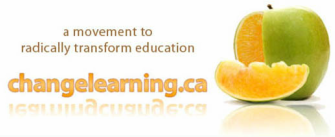(Source: Canadian Council on Learning)
Link:
https://www.childcarecanada.org/documents/research-policy-practice/17/11/let-children-play-natures-answer-early-learning

|
|
|
Play enhances every aspect of children’s development and learning, however, it is increasingly rare for children to have long, uninterrupted blocks of time to play indoors and outdoors, by themselves or with their friends. Although children learn to play naturally, we all have a role in ensuring that children have enough time and opportunity to play.
(Source: Canadian Council on Learning) Link: https://www.childcarecanada.org/documents/research-policy-practice/17/11/let-children-play-natures-answer-early-learning
2 Comments
Roots of Empathy (ROE) is an award winning, evidence-based classroom program that has shown dramatic effect in reducing levels of aggression and violence among school children while raising social/emotional competence and increasing empathy. The program reaches children from Kindergarten to Grade 8 across Canada, in English and French, in rural, urban, remote and Aboriginal communities both on and off reserve and internationally in Australia,New Zealand, and the United States.
Read more Research shows ‘Signs of Suicide’ prevention program helps reduce the number of attempts by high school students.
Read more With a constructivist viewpoint of learning and a commitment to experiential education and authentic outcomes, Sharon MacKenzie takes her middle school classes out of the school and into the world. From spending 2 months of the year in a seniors’ residence to raising thousands of dollars through developing and running a small business, the results are amazing – for the community as well as for the students.
Read more How does a 19th Century Maori war chant figure into the college aspirations of a bunch of student athletes in El Segundo? Just another means of preparing students — not just for college, but for life, suggests Dan Golden, who was recently hired for the new position of director of life planning and experiential learning at the private Vistamar School in El Segundo.
Read more Play enhances every aspect of children’s development and learning, however, it is increasingly rare for children to have long, uninterrupted blocks of time to play indoors and outdoors, by themselves or with their friends. Although children learn to play naturally, we all have a role in ensuring that children have enough time and opportunity to play.
(Source: Canadian Council on Learning) Link: http://www.ccl-cca.ca/CCL/Reports/LessonsInLearning/LinL20061010LearninPlay.htm We now understand that evolution has provided humans with a powerful toolkit of predispositions that go a long way in explaining our ability to learn language, cooperate in groups, solve problems, plan for the future and empathize with others. This evolutionary inheritance both empowers us and constrains us. We are born ready to learn, but our brains are wired to learn more effectively under certain conditions. Humans learn best when we ‘go with the grain of the brain’ instead of against it.
Imagine schools designed to work in alignment with everything we now know about how kids learn, grow and thrive. Read more There are many different opinions on what school is for. Some say it is to learn the academics, others believe school's also teach social and civic responsibilities.. In my opinion, school should be about raising a child who is not just a capable worker for the GDP, but one who is a fundamental requirement to society. Schools need to be facilitating the full development of young children to a young adult; raising people who are vocal enough to question the unquestionable, creative enough to imagine the unimaginable, resourceful enough to answer their own questions, and radical enough to believe they can change the world for the better. Paul Hillsdon, High School Student
|
Categories
All
Archives
August 2015
|